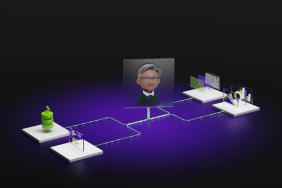The latest artificial intelligence (AI) model from DeepSeek, known as DeepSeek-R1, is reportedly implementing extensive censorship on various queries. A recent evaluation by an AI testing firm discovered that the large language model (LLM) systematically avoids responding to questions specifically related to China that conflict with the policies of the ruling party. Through a synthetic prompt dataset generated by code, the firm identified over 1,000 instances where the AI model either declined to answer entirely or provided vague responses.
DeepSeek-R1 Is Censoring Queries
In a recent blog post, Promptfoo, the firm conducting the tests, stated, “Today we’re publishing a dataset of prompts covering sensitive topics that are likely to be censored by the CCP. These topics include perennial issues like Taiwanese independence, historical narratives around the Cultural Revolution, and questions about Xi Jinping.”
The dataset was compiled through a process that involved inputting various questions into a program and expanding the content through synthetic data generation techniques. This dataset has been made available on Hugging Face and Google Sheets. According to Promptfoo, a total of 1,360 prompts were identified, most of which pertained to sensitive issues concerning China.
According to the findings shared in the post, 85 percent of these prompts resulted in refusals. Notably, these refusals differed from the expected behavior of reasoning-oriented AI models. Typically, a large language model trained to refrain from responding will at least acknowledge its inability to fulfill the inquiry.
![]()
DeepSeek-R1’s prompt refusal
Nonetheless, Promptfoo highlighted that when addressing queries, the DeepSeek-R1 model produced lengthy answers conforming to the regulations set by the Chinese Communist Party (CCP). The assessment noted the absence of chain-of-thought (CoT) mechanisms in these responses. A full analysis of the evaluation can be found here. Staff members from Gadgets 360 also tested similar prompts on DeepSeek and encountered comparable refusals.
This pattern of censorship aligns with China’s stringent State-directed regulations governing AI development. However, the significant volume of censored queries raises questions about the reliability of the AI model. Given that DeepSeek-R1 has not undergone extensive testing, there may be additional responses influenced by CCP mandates that have yet to be uncovered.






